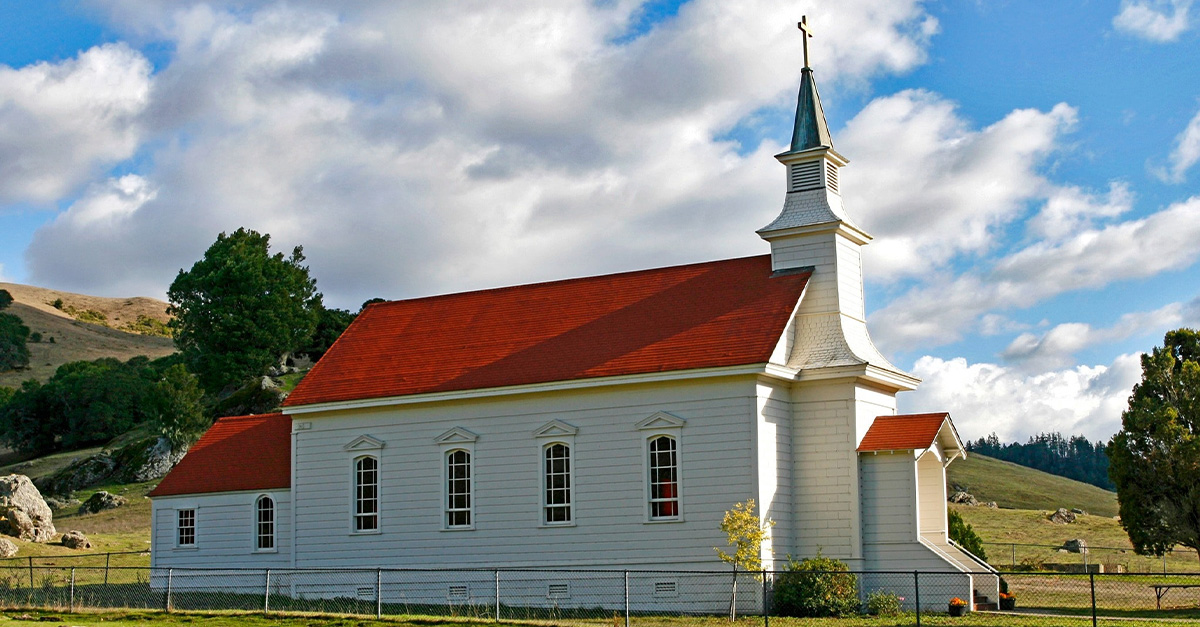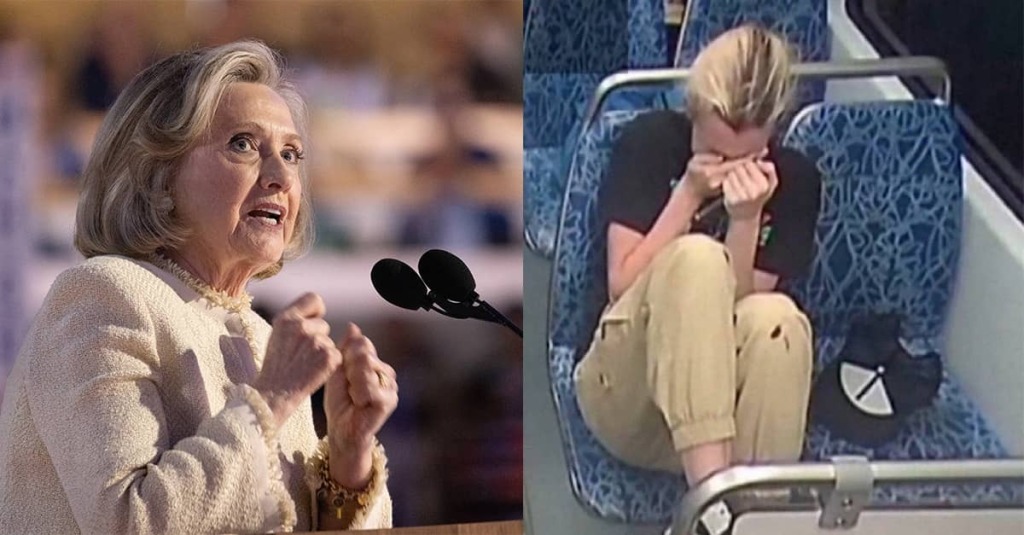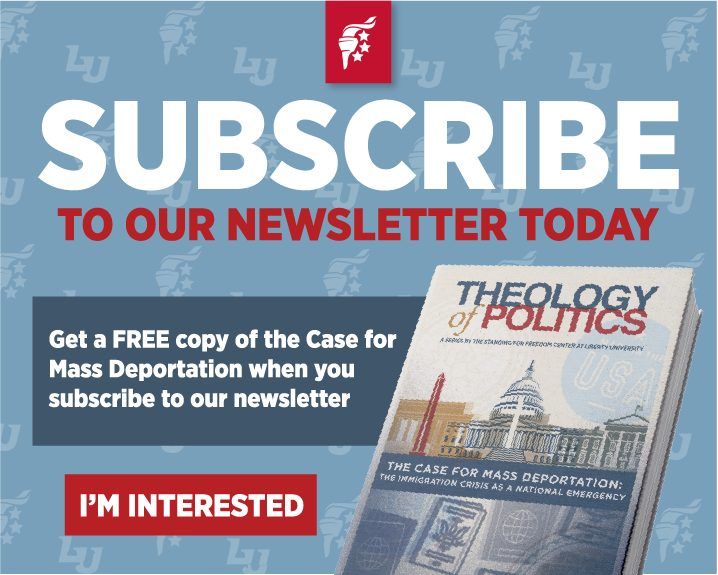“If America is going to endure, it must win this war against the pagan god of wokeness. It must recapture the institutions that have fallen to the cultural Marxists. Specifically, we must recapture or re-found our Protestant Christian institutions.”
–WILLIAM WOLFE
The post-Roe landscape in America is a battlefield. The division in our nation is obvious. The discord is cacophonous. But the cause for the strife is often mistaken. Many confuse the signal for the noise.
Pinning our division on politics, class warfare, or the media isn’t wrong, but it’s not the most comprehensive diagnosis available. It’s real, but it’s the noise, the sound interfering with our ability to discern what’s really happening.
The signal — the true and meaningful information — is that we are fighting a religious battle. And on this blasted soil, the gods are raging.
In this Holy War, there are many thoughtful Catholics and committed Jews who are articulating the need for a recovery of religion as the foundational component of well-ordered liberty in the American republic. We need such allies.
But Protestants — specifically evangelicals — have been some of the most notorious compromisers on questions of religion and the public square of late. Far too many evangelicals have bought into a concept of unlimited pluralism or a post-war conception of religious liberty that is far afield from what our historical forerunners would recognize.
It’s time for Protestants to really join the fight.
Consider how the pagan (or should we say demon) gods of secularism shriek as they suffer even a small loss at the hands of the Dobbs ruling. Their avatars and prophets scorch the earth (or, if they get their way, crisis pregnancy centers) as they are forced to yield even a foot of ground back to the boundaries of traditional Judeo-Christian morality.
Thus, at the most primordial level, what’s tearing our nation apart is a religious conflict.
There are two, diametrically opposed, systems of belief fighting for the soul of America. Each one carries with it metaphysical claims about the nature of existence, anthropology, hamartiology, theology, a promise of salvation, a moment of conversation, a religious elite, an orthodox confession, a church, rites and rituals to identify oneself as an adherent, and an eschatological hope.
It’s Christianity versus…well, everything else. We used to refer to “everything else” as secularism. But this isn’t your Momma’s secularism. It’s a far more virulent strain.
These days, the competing religion is better summed up under the heading of something like “Critical Theory,” “cultural Marxism,” or the catch-all term of the moment: “wokeness.”
Even secular scholar and linguist John McWhorter has pegged it as such. Speaking to one manifestation of wokeness, specifically in regards to the race debates, McWhorter argues that “the way we talk about white privilege is eerily consonant with the way one talks about original sin. You have it from the beginning, it’s a stain that you’ll never get rid of. You’re supposed to always think about it. It’s there regardless of the condition of your life, and you’re going to die with it. So white privilege becomes the original sin that you’re supposed to live in a kind of atonement for.”
In his recent article at American Reformer, Christian professor Bradley Green makes the same case, highlighting the truth that “Critical Theory is in effect an alternative theology or religion.”
Both Critical Theory and its more populist offspring, wokeness, are exports of the Frankfurt School and its larger project of cultural Marxism. The Frankfurt School was a tawdry band of disaffected intellectual Marxists who worked to translate Marx’s economic vision into a broader cultural mandate. They did this for a variety of reasons but, most significantly, because the long-awaited communist revolution hadn’t happened, at least not on the global scale as envisioned by Marx. While Marxism had given rise to the Soviet Union in Russia, it had not taken root in the West. So, instead of an economically driven uprising, they laid the explosive groundwork for a cultural one. Preaching a gospel of liberation from all societal constraints (like the market economy) and constructions (like sexual morality), the Frankfurt School launched what’s been termed “the long march through the institutions.”
The purpose of this institutional capture is to remove our American defenses against the revolution, namely the institutions of the family, the Church, and universities.
The secular universities have already fallen. And many so-called Christian schools of higher education have all but abandoned any semblance of orthodox Christian commitments, such as Calvin University.
But if America is going to endure, it must win this war against the pagan god of wokeness. It must recapture the institutions that have fallen to the cultural Marxists.
Specifically, we must recapture or re-found our Protestant Christian institutions. After all, these were the drivers of American success and advancement for the first few hundred years of our history.
For whether or not one prefers to call America a “Christian nation,” the indisputable fact is that America had a Christian founding. In his book seeking to address this very question, Did America Have a Christian Founding: Separating Modern Myth from Historical Reality, Mark David Hall argues that “America’s founders were influenced in significant ways by Christian ideas when they declared independence from Great Britain, drafted constitutions, and passed laws to protect religious liberty.”
Furthermore, the Christian founding of America had a particular expression: It wasn’t just “Christian,” it was Protestant.
In his recent, and excellent, piece Against Public Atheism, Timon Cline makes the case for the historic Protestant Christian fabric of America. He notes that “To say that America, in its first decades, honored the majority Christian religion would be only half right. It more often honored a Protestant Christianity.” He also skillfully takes to task those who would sacrifice this foundation of Protestantism to the cultural Marxists in exchange for their precious pluralism. He rightly points out that “If Christianity and the Bible do not fuel that formation {of public virtue] something else will (and lately has).”
In the public square ruled by public atheism, the “something else” has been quite ugly. These days, it often looks like a man pretending to be a woman. We can all see he’s a man, but we are told to call him a woman. The age-old adage about lipstick on a pig will certainly suffice here, but in the Woke States of America, if you don’t pretend it’s not a pig, you’re going to be censored and suffer the consequences.
This again is to say, if we want to right the ship of our nation before it finally follows in the footsteps of the Titanic, we need faithful Protestant Christian institutions (that is, families, gospel-preaching churches, publishing outlets, journals, schools, and universities) to make a comeback.
The point I’m making is nothing new. In his 1832 speech “A Plea for the West,” Lyman Beecher also argues that Protestant Christianity must be the foundation for democratic institutions in America. Beecher, the father of abolitionists Henry Ward Beecher and Harriet Beecher Stowe, served as a pastor in New England and was a strong proponent of the need for Christian education as the basis for an enduring free, and moral, society. Now, in his day and moment, Beecher was making a case against Catholics and Mormons in a particular way. Leaving that aside, his admonitions about the relationship between Protestant Christianity and the endurance of America are worth re-hearing in our present hour.
According to Conrad Cherry in God’s New Israel: Religious Interpretations of American Destiny, Beecher “declared the United States was ‘destined to lead the way in the moral and political emancipation of the world’ and that many of the resources for that destiny lay in the West” (114-115). For Beecher, there was an irreplaceable link between Protestant Christianity and the furtherance of democratic institutions during the period of westward expansion. Cherry notes that, for Beecher, “If the West were not given the benefits of Christian education, however, it would not adequately absorb the spirit of democracy” (Cherry, 115). The link, then, for Beecher is, in fact, a lifeline; without Christianity, democracy (by which he means our constitutional republic) would fail.
Looking more closely at “A Plea for the West,” Beecher argues that “all great eras of prosperity to the church have been aided by the civil conditions of the world” and that “such a state of society as is predicted to pervade the earth, cannot exist under an arbitrary despotism, and the predominance of feudal institutions and usages” (Beecher, 122-123).
Beecher clearly articulates his hand-in-hand vision of Christianity and a free society, each enabling the other to flourish. If we remove Christianity, freedom will leave as well. For Beecher, Protestant Christianity is to America what the “arc reactor” is to Tony Stark’s Iron Man suit. Pull out the heart and the whole thing powers down. As Cherry puts it, “Clearly for Beecher and many of his fellow Protestants, Christianizing the West meant infusing American democratic institutions with the Protestant religion” (Cherry, 115).
Of particular concern for Beecher was the role of education in the preservation of the American system, and the content of that education must be Christian. He claims that the “thing required for the civil and religious prosperity of the West, is universal education, and moral culture, by institutions commensurate to that result—the all-pervading influence of schools, and colleges, and seminaries, and pastors, and churches” (Beecher, 124).
What Beecher saw as indispensable for American expansion in the 1830s is exactly what the cultural Marxists see as obstacles to their own expansion in the 2020s. Perhaps they are both onto something, albeit from different angles and with inverse motives.
Of course, Beecher could have never imagined the godless tyranny that pervades most college campuses today. Nor could he have foreseen how secular progressives, and even, more disturbingly, Christian progressives, are more than happy to gut Christian institutions and wear them as a skinsuit, trading on the black and white letters of their confessions while pledging true allegiance to the Rainbow Flag.
In fact, Beecher thought that “all attempts to legislate prosperous colleges and schools into being without the intervening influence of religious education and moral principle, and habits of intellectual culture which spring up in alliance with evangelical institutions, have failed” (Beecher, 126).
As he closes out his speech, Beecher calls on his fellow citizens to “co-operate immediately in this glorious work of consummating the institutions of the West, essential to the perpetuity of her greatness and glory” and, by doing so, ensure that these institutions are “neither few, nor feeble, nor obscure” (Beecher, 128). While I would eschew the providentialism found in Beecher’s vision, his claims are worth considering today.
America was built on the bedrock of Protestant Christianity — the heritage of the Reformation. The cultural-shaping institutions of our nation were, once, almost exclusively, the products and progeny of the Protestants. Peculiar then is our moment, where so many Presbyterians and Baptists have retreated from the culture wars and the public square. In our absence, monsters once banished to the darkness by Christianity are boldly coming back into the light.
Either Protestants lend a hand to American renewal and revival, or the project will fail. The nation needs both law and gospel truth — and Christianity has both.
Now is the time, before the cultural Marxists and public atheists finish their march, to “lend a hand” to America, “to get up her institutions, to give ubiquity to her schools and Sabbaths and sanctuaries” (Beecher, 130).
What happens if we don’t? “Our intelligence and virtue will falter and fall back into a dark minded, vicious populace—a poor, uneducated reckless mass of infuriated animalism, to rush on resistless at the tornado, or to burn as if set on fire of hell” (Beecher, 130).
That’s a somewhat figurative way to describe Drag Queen Story Hours or the current state of our Ivy League schools (such as when Kristen Waggoner was shouted down at Yale Law School during a talk on free speech), but it’s a fitting description, nonetheless.
Reversing this course, coming out of our “infuriated animalism,” will require Protestants to remember and recover their roots. I see encouraging signs of such efforts underway. But let’s pray for reinforcements because the barbarians aren’t just at the gates; in many cases, they are the gatekeepers of the institutions that once were ours.
Beecher had a “Plea for the West”; consider this my “Plea for What’s Next.” The country’s founding and the infrastructure of our once-glorious institutions are ours, though misunderstood and misappropriated by Marxists. But ours, too, is the Protestant work ethic. Perhaps if we recover that as well, we will stand a fighting chance.
Follow William on Twitter! @William_E_Wolfe
Ready to dive deeper into the intersection of faith and policy? Head over to our Theology of Politics series page where we’ve published several long-form pieces that will help Christians navigate where their faith should direct them on political issues.





